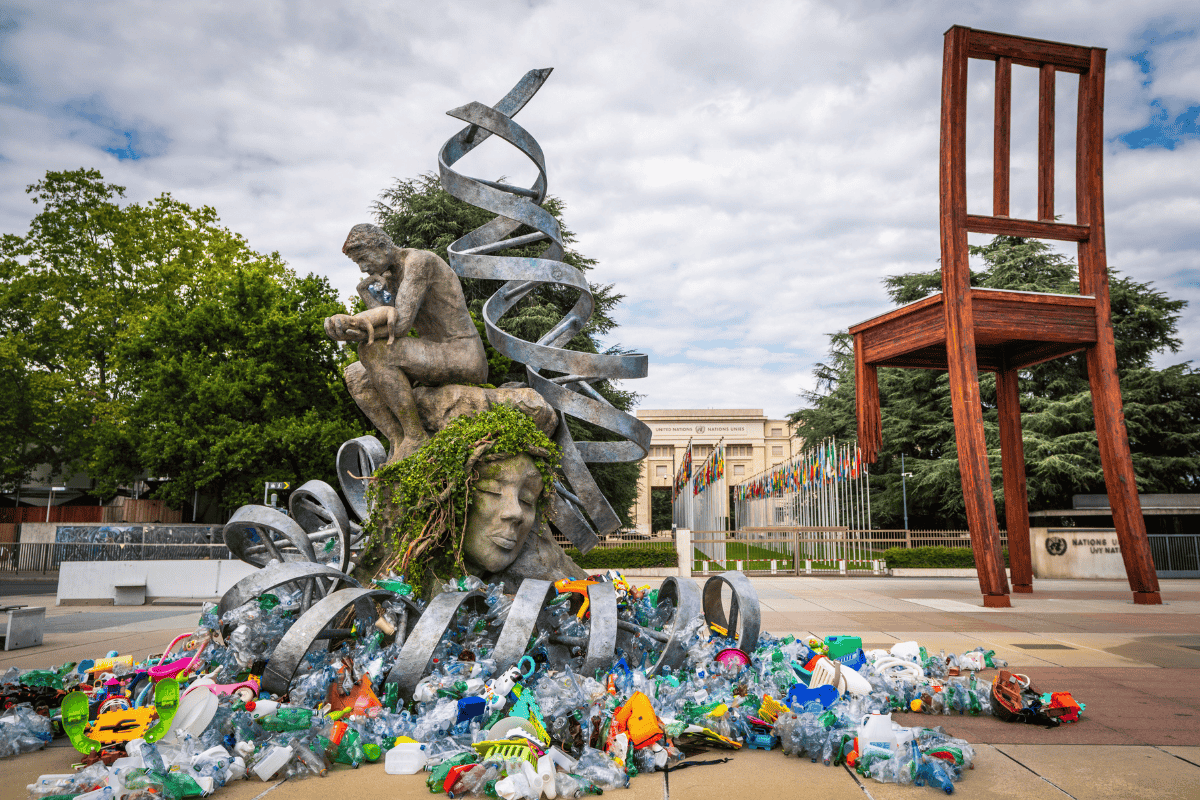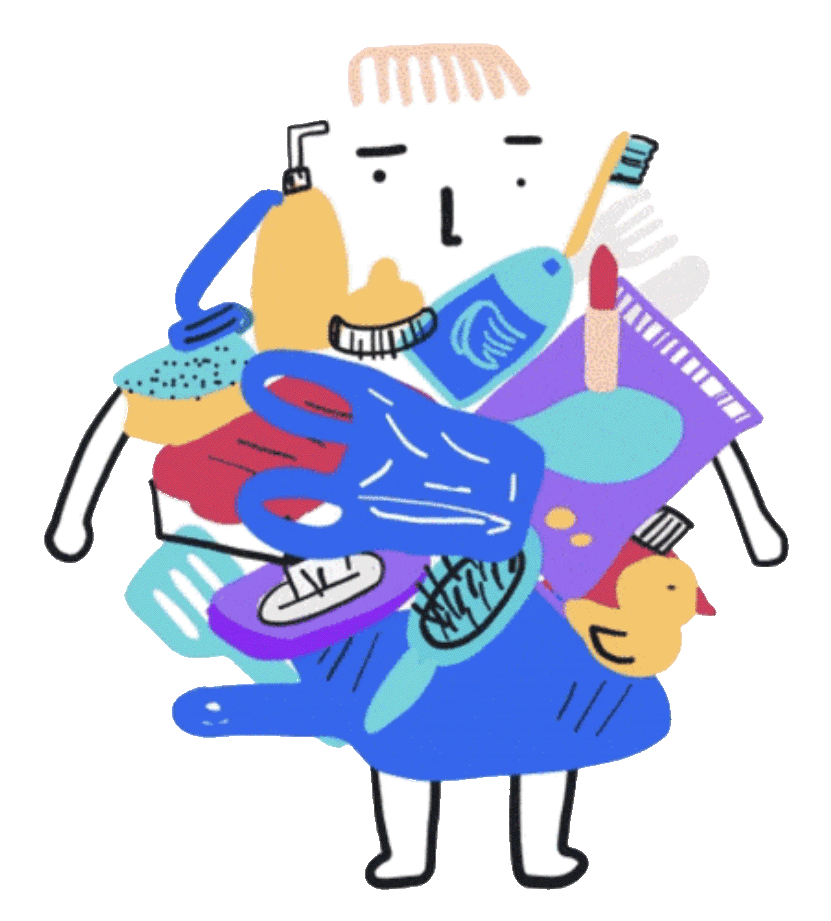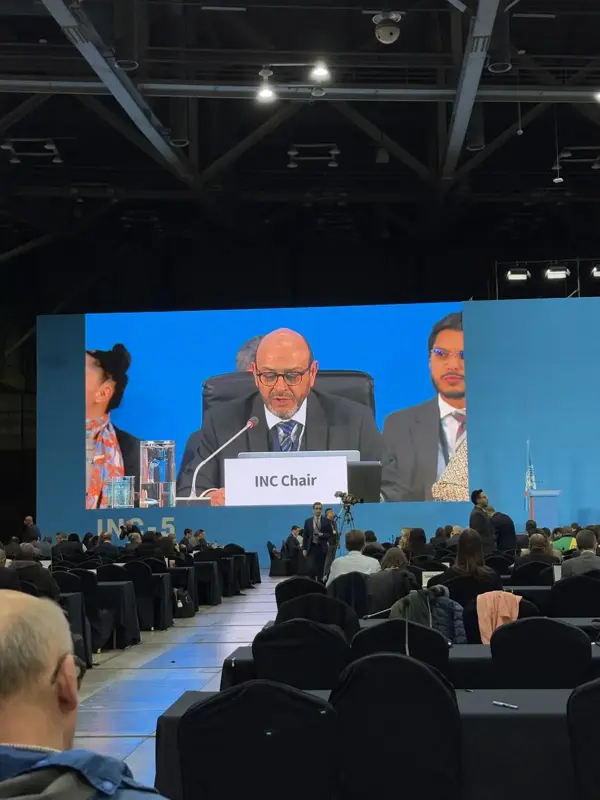Top scientist warns against three everydayproducts to avoid “at all costs”
Exposure to plastic chemicals while sleeping, eating and showering
- Bedding, food packaging and personal care products are the biggest sources ofplastic chemicals in the home, says Prof Dr Shanna Swan
- Microplastics are found throughout the human body and are linked to strokes,cancer and infertility
- Scientists demand action at the UN summit as delegates negotiate a globalplastics treaty in Geneva
Amsterdam, 8 August 2025 – Scientists are calling for global measuresto protect human health from plastic pollution. The warning comes asthe final round of negotiations for a global plastics treaty is underway inGeneva, Switzerland.
Professor Dr Shanna Swan, a renowned American reproductive epidemiologist,has identified three categories of plastic products that people should avoid "at allcosts" to reduce their exposure to toxic chemicals. Bedding, food packaging andpersonal care products are named as some of the most hazardous sources ofplastic chemicals in our homes that can enter the body.
Risks to heart health, fertility and cancer
Swan is a member of the Plastic Health Council, a coalition of leading healthscientists advocating for global regulation. Microplastics have been foundthroughout the human body and are associated with a range of health problems,including increased risks of strokes, cancer and infertility.
The Council is making its voice heard as UN delegates in Geneva negotiate thefinal text of a treaty to combat plastic pollution. The call to protect public healthwill be made during the closing talks, aiming to establish global rules againstplastic pollution.
Three everyday sources of plastic chemicals
Although consumers are trying to reduce their use of plastic, research shows thatchemical exposure can occur in multiple ways, often without people realising it.For example, heating or freezing food in plastic containers can significantlyincrease chemical leaching, particularly with ready meals, takeaway packagingand disposable containers.
Bedding made from synthetic materials, including pillows, mattresses and even sheets, often contains flame retardants and water-repellent coatings such as PFAS. Prolonged, close contact with these chemicals during sleep can increase
exposure. Personal care products are also a potential source, with skincare products, shampoos and shower gels that may contain acrylates, plastic thickeners and undeclared additives.
Call for action
“Policy is lagging behind the science,” says Professor Dr Swan. “Every day, more plastic chemicals enter our bodies through products that many people regard as safe and normal. We therefore need urgent regulatory measures to drive real change. We must phase out toxic plastics and put health first at every stage of the plastics chain.”
She and the Plastic Health Council advocate for a treaty that protects people from the impacts of plastics by imposing production limits and banning toxic chemicals from everyday products. Shanna Swan explains this further in the third episode of Scientists Speak Out, a series of mini-documentaries on the effects of plastics on the human body. This episode will be premiered in Geneva.
Scale of the crisis
In 2025, more than 500 million tonnes of plastic will be produced. Scientists have identified over 16,000 chemical substances present in plastic products and found that more than 4,000 of them are harmful to human health and the environment. Recent research by Professor Dr Leonardo Trasande, also a member of the Plastic Health Council, estimated that exposure to DEHP, a chemical used in many plastics, contributed to more than 356,000 premature deaths worldwide in2018.
Trasande, Director of Environmental Paediatrics at the NYU Grossman School of Medicine, says: “As medical professionals, we see the health impacts of plastic pollution every day. While individuals do what they can, no one should have to navigate a toxic system alone. The chemical burden of everyday items is enormous and inescapable.”
International support and political resistance
The Plastic Health Council has long advocated a robust UN plastics treaty that protects human health. Its key demands include reducing plastic production, phasing out all non-essential single-use items and mandatory safety testing for all chemicals used in plastics.
After three years of UN negotiations, a majority of countries now support strong measures such as production limits and a ban on potentially toxic chemicals in plastics. Despite this support, a small number of oil-producing countries, such as Saudi Arabia, and the petrochemical industry have disrupted previous rounds oftalks.
Maria Westerbos, founder of the Plastic Soup Foundation and co-founder of thePlastic Health Council:
“Our addiction to plastic has severe consequences for all life on earth. Plastic is not inert; it is a toxic mixture of oil and chemicals. If governments and industry refuse to protect us, we must take our health into our own hands and demand answers to why babies are already born ‘chemically polluted’, even though the science has been clear for decades. When is it enough?”


.png)
.png)



